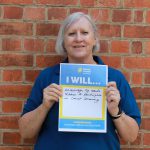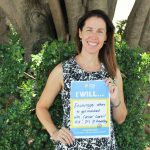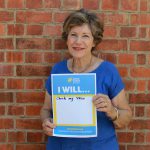As new research* has revealed the number of cancer cases that would be potentially avoidable if the prevalence of overweight and inactivity could be reduced, Cancer Council Queensland has launched a new awareness campaign.
The forecast, released this World Cancer Day (February 4), has shown that over 200,000 cancer cases could be avoided in Australia over the next 25 years if all Australian adults maintained a healthy weight and met the physical activity guidelines for cancer prevention, prompting a call for personal and government action.
The study, conducted by QIMR Berghofer Medical Research Institute, and funded by Cancer Council Australia and the National Health and Medical Research Council, aimed to quantify the proportion of cancer cases that would be potentially avoidable if the prevalence of overweight/obesity and inactivity could be reduced in Australia.
Researchers found that if all Australian adults maintained a healthy weight, as many as 190,500 overweight/obesity-related cancers could be prevented over a 25-year period.
A further 19,200 inactivity-related cancers could also potentially be avoided if every Australian adult undertook at least five hours of moderate intensity physical activity per week.
Professor Sanchia Aranda, CEO Cancer Council Australia said, “With more than two thirds of adults considered overweight or obese, and nearly half insufficiently active, these results show we have the potential to prevent a significant number of cancers in Australia and potentially save thousands of lives.”
Cancer Council Queensland CEO Ms Chris McMillan explained that individuals can take steps to reduce their risk of lifestyle-related cancers.
“We already know that one third of all cancer cases could be prevented through healthy lifestyle choices, such as eating a healthy diet, being physically active, quitting smoking, being SunSmart and limiting alcohol.”
Ms McMillan said today marked the start of an awareness campaign that called on Queenslanders to make a Pledge of Hope and share on social media what action they will be taking to help reduce the impact of cancer.
“Every Queenslander has the power to reduce the impact of cancer for themselves and the people they love – whether that’s through making healthy lifestyle choices, taking part in cancer screening programs, or raising funds for the cause,” Ms McMillan said.
“In August we’ll be creating the world’s largest daffodil out of all the pledges in conjunction with our Brisbane Broncos partnership for Daffodil Day.
“If you believe in our vision of a cancer free future, please share your pledge on social media using the hashtag #PledgeofHope and secure your spot in this historic appeal for action.”



Professor Aranda continued that while it is important for people to look after themselves by doing regular physical activity and eating a balanced diet, Australia’s obesity problem cannot be placed entirely on the individual’s shoulders.
“In the lead up to the next federal election, both sides of politics need to recognise their responsibility to help protect children from mass marketing of junk food; improve the Health Star Rating food labelling system to provide simpler, more informed choices to consumers; and promote more public education about the benefits of good nutrition and exercise,” Ms Aranda said.
World Cancer Day is an initiative of the Union for International Cancer Control (UICC) held on 4 February each year that raises awareness of cancer globally.
For more information on the #PledgeofHope campaign and social media resources, Queenslanders can visit cancerqld.org.au/pledgeofhope.
ENDS
*The study has been published in the International Journal of Cancer. It was funded by Cancer Council Australia and the National Health and Medical Research Council. The journal article can be accessed via the following link on the International Journal of Cancer website: https://onlinelibrary.wiley.com/doi/full/10.1002/ijc.31943.
For more information on the Pledge of Hope campaign, or interviews with Cancer Council Queensland CEO Chris McMillan, please contact:
Lisa Maynard, Public Relations and Social Media Manager, Cancer Council Queensland
M: 0488 015 702
E: lisamaynard@cancerqld.org.au
For more information on the research study, or interviews with Cancer Council Australia CEO Professor Sanchia Aranda, please contact:
Tegan Brown, Media and Communications Manager, Cancer Council Australia
Ph: (02) 8063 4143
E: media@cancer.org.au
Nutrition and physical activity recommendations
Cancer Council Queensland makes the following recommendations for nutrition and physical activity in support of the Dietary Guidelines for Australian Adults and the National Physical Activity Guidelines for Australians:
- Aim for 150 to 300 minutes of moderate physical activity each week, such as a brisk walk, recreational swimming, dancing or even pushing a stroller
- Eat plenty of vegetables, legumes and fruit: five or more servings of vegetables and two or more servings of fruit per day
- Make most of your cereals wholegrain
- Eat meat in moderation – no more than 455 grams of cooked, lean red meat each week and avoid processed meats
- Select lower fat foods like lean meat and reduced-fat dairy products, and try using low-fat cooking methods like grilling instead of frying
- Choose low-salt products – flavour foods with herbs and spices instead of salt
- Avoid sugary drinks and limit energy dense foods, such as ‘junk foods’ and sugary snacks

